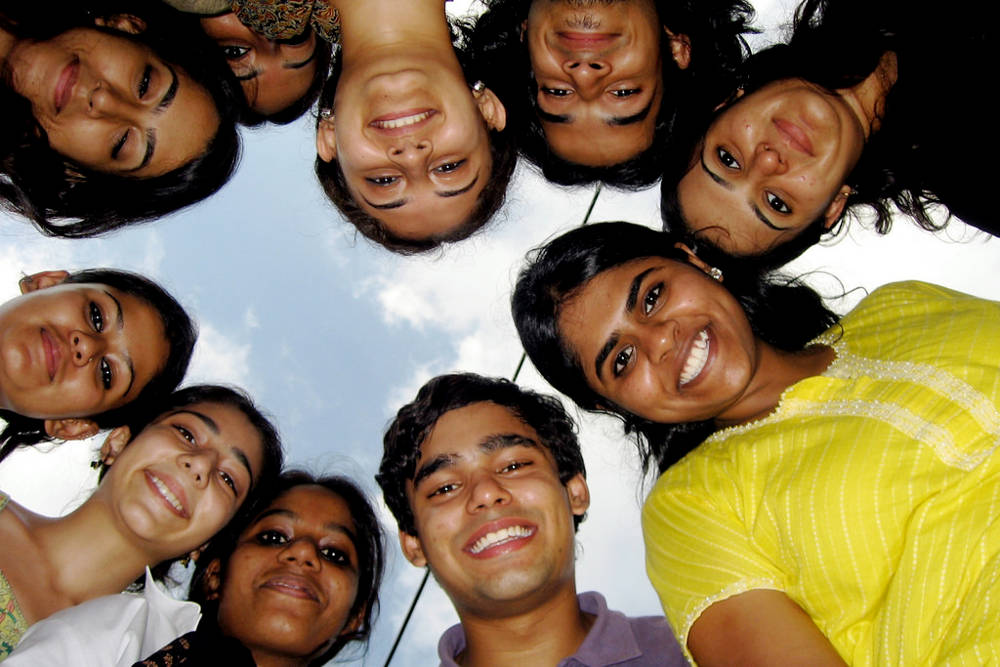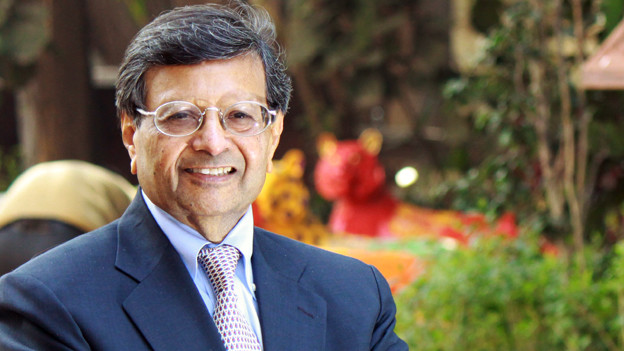BY DR. JAGDISH N. SHETH*
In the 2019 general elections in India, there will be 100 million first time voters between the ages of 18-24. Just as they will make a difference in the outcome of elections, they will also make a difference in defining New India and its future across all walks of life.
Just as the political independence of 1947 and the economic reforms of 1991 transformed India into one of the world’s largest democracies and business entrepreneurship respectively, the rise of this New Age Generation, will transform India’s family structure, consumption and workplace as we know them today. While independence resulted in the democratization of politics and economic reforms resulted in democratization of wealth, the rise of the New Age Generation will forever democratize the family, the market place and the work place.
Why is this New Age Generation the symbol of New India and how will it influence markets, work and family? The New Age Generation is a young family where both husband and wife have college education but both have to work to economically survive and achieve their aspirations. Neither wants to live with their parents. They believe parents will deprive their freedom and independence, and possibly interfere in their new lifestyle. What matters to this new age generation is personal independence and freedom. In the US, we often refer to them as DINKS (Dual Income, No Kids). Time has become a scarce resource, and since both work, there is permanent time shift and time poverty for daily activities of shopping, worship, sleep and recreation.

The New Age Generation cannot live without a smart phone and they constantly communicate by text messages to each other. Just like in the Western society, nobody will be home between 8am to 8pm on Mondays through Friday. And the New Age Generation has a hard time catching up with what they want to or need to do over the weekend. Sundays become very precious and the couple resents any intrusion from the boss or from other family members. To cope with life, both are desperately latching on to spirituality (but devoid of religious rituals) and to a “holistic” life style with yoga and meditation.
The New Age Generation is everywhere and transcends the traditional metro vs. non-metro market definitions as they also transcend religion and subcultures of India. In fact, while the percentage may be greater in the metro markets, the absolute numbers are much bigger in non-metro markets. The most common language both at work and at home is English (or more accurately Hinglish) even though both the husband and the wife may come from the same linguistic and cultural heritage.
In my view, the rise of this New Age Generation is a one way and a permanent discontinuity from the past. In other words, it is a non-linear change in values, opinions and activities from the previous generations. The generation gap is no longer twenty-five years but as short as eight to ten years. Often, the younger sister or brother is unable to relate to their older siblings within the same family if they are eight to ten years apart. The joint family or even the extended family tradition will give way to a nuclear family structure where the definition of family itself will be narrowed to husband, wife and any children. It will not include parents, grandparents, brothers and sisters or uncles, aunts and cousins.
How will this generation discontinuity affect consumption, family values and the workplace? Here are some thoughts:
- Outsourcing Comes Home: The New Age Generation has neither the time nor the inclination (or the competency) to make things at home. They will buy products and services instead of making them at home. And this goes for laundry, house cleaning and child care. The good news is that when consumers make things at home, it is not calculated in the gross domestic product (GDP) of a nation but when they buy it from the market place, it is. The bad news is that this generation will, over time, become incompetent in home making activities and skills and therefore, will not be able to pass them on to the next generation. Succession stops here.
I have observed that when the society gives up an activity, it always comes back as a hobby. For example, hunting, fishing, gardening, and baking breads. Today, cooking has now emerged as a hobby in America and in India. The Food channel is very popular; it is making ordinary chefs into celebrities just as we do with the show business (Hollywood, Bollywood and Tallywood) actors and professional sports players.
- Goodbye to the Neighborhood Provision Store: The New Generation cannot relate to the age old neighborhood provision store owner who had a multi-generation relationship with the family, or with the delivery boy who came every day to replace the daily necessities. Similarly, the milk man, the laundry man, and the recyclable newspaper waste collector are not welcome anymore because there is nobody at home during the working hours.
Even more importantly, this generation wants to buy only branded products which are ready to consume. It has no time to do the value add to unbranded grains (lentils and cereals) or fresh vegetables from the market. They prefer shopping at a modern, self-service supermarket or hypermarket such as the Big Bazaar and the Metro. Branding matters a lot to this generation; they are both quality conscious and value conscious simultaneously.
- When Wants Become Needs: What were wants, desires and dreams of the past generations are all at once becoming necessities of this New Age Generation. They cannot live without smart phones, the internet, credit cards, flat screen televisions and a motorized vehicle, such as, a motorcycle (or a scooter) but preferably a car. Of course, this generation does not have the means to satisfy all these new needs.
Furthermore, as a starter family, the real needs of child rearing and child education as well as taking care of aging parents will just begin. Therefore, affordability and ability to pay will put even more stress on the New Age Generation, resulting in highly stressed workers at the workplace. The Indian employers of tomorrow will have to understand and intervene in this home-work blurring of boundaries and the family-work balance. The need to do financial planning, making a will and trust, balancing the short term vs. the long term financial stability and building a healthy balance sheet will become not just a “good” thing to do but a necessity.
- Blurring Roles and Responsibilities: This New Age couple will be different from their parents in roles and responsibilities. The traditional role of the husband as the bread winner (Mr. Outside), wife as the homemaker (Mrs. Inside) and mission of marriage to procreate and nurture the next generation is likely to go away. The New Age family will be more egalitarian in the relationship between the husband and the wife. The husband will be encouraged to contribute toward household chores, including cleaning, cooking and child care and the wife working outside the home will not be discretionary but a permanent necessity.
- Friendship Replaces Kinship: Friendship will replace kinship for socialization and support as the New Age Generation embraces new values, beliefs and activities. In other words, there will be less in common with family members, especially the older generation and more in common with friends from the college, the workplace or the neighborhoods. This has enormous implications for marketers with respect to their messages and the media they use. The New Age Generation and their friendship cohorts are perfect targets for social networking and social media for communicating about brands, stores and products.
- Spiritualism Coexists with Materialism: As this generation disassociates with heritage and embraces contemporary values and life styles, it will increasingly struggle with self-identity. Greater the materialism driven by wants becoming needs and as friendship replaces kinship as a social anchor, it will search for meaning of life by turning to spiritualism, yoga and meditation. In other words, spiritualism will coexist with materialism unlike past generations where spiritualism followed successful materialism at different stages of a family life cycle.
Whether all this is good or bad for the future of India is for the historians to debate and judge. My view is that it is inevitable and most likely irreversible at least in the short run. However, most demographic shifts are not linear and often they reverse back to old, familiar ways, albeit in a more contemporary context.
*Jagdish N Sheth, Ph.D. in Behavioral Science from University of Pittsburgh, is the Charles H Kellstadt Professor of Business at the Goizueta Business School at Emory University. He has published more than 300 research papers and authored more than 20 books in consumer behavior, globalization, marketing strategy, and relationship marketing.
SUBSCRIBE TO DR SHETH’S YOUTUBE CHANNEL!



